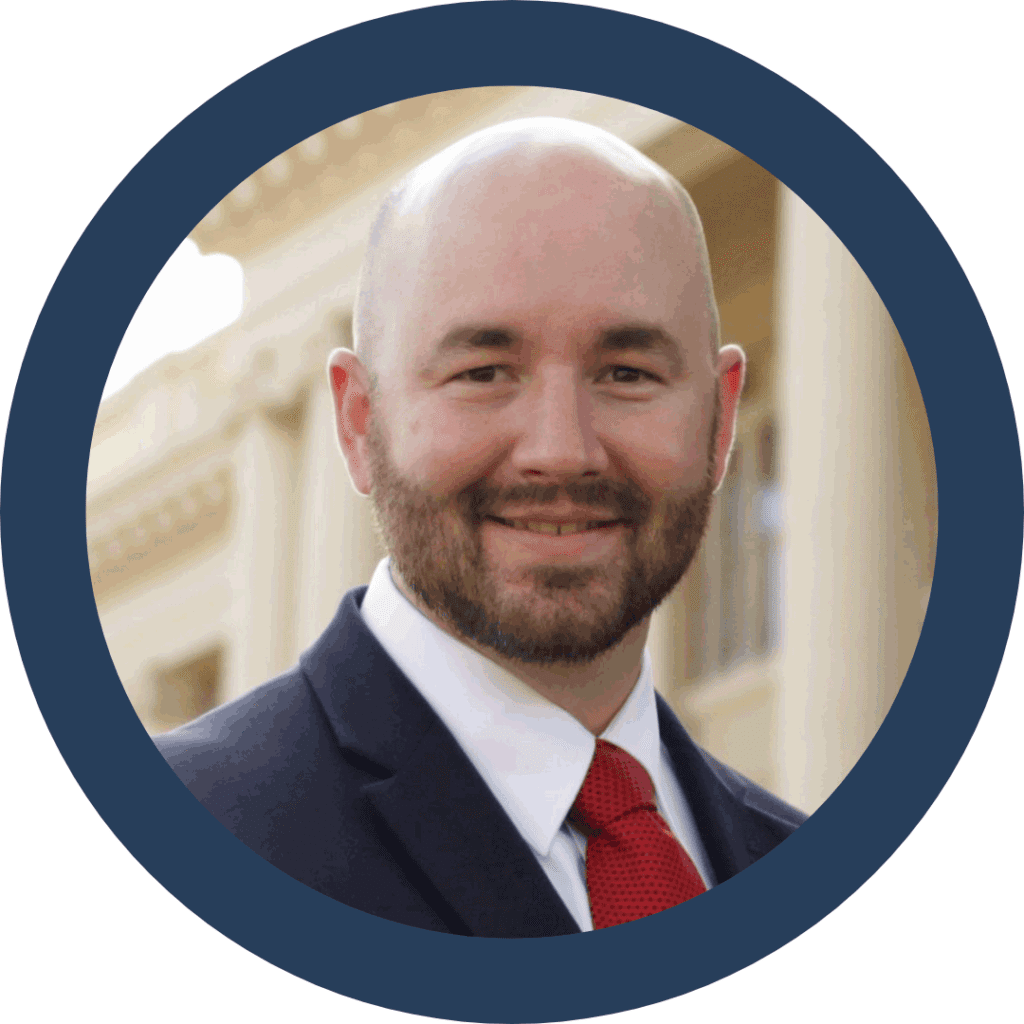Estimated Time to Read: 11 minutes
Harris County officials recently approved, by a 4-to-1 vote, a new iteration of the Uplift Harris program, aiming to provide guaranteed income to only some residents. Dubbed “Uplift Harris 2.0,” this revamped program comes on the heels of intense legal scrutiny and public debate. As local governments across the country explore ways to address what they deem as income inequality and economic instability, Harris County’s approach to guaranteed income remains controversial.
It is worth noting that Harris County voters are also being asked to vote on a tax rate increase in the 2024 November general election, as county leaders indicate that they need to cut more than $20 million from the budget.
Background: The Uplift Harris Program
The original Uplift Harris program was launched as part of Harris County’s efforts to provide direct financial assistance to low-income residents. The program aimed to address the perceived economic disparities exacerbated by the COVID-19 pandemic, which left many households struggling to meet their basic needs. Uplift Harris aimed to provide monthly $500 payments to selected participants, using taxpayer money allocated through the American Rescue Plan Act (ARPA). Qualifications for the program included the requirement that applicants earn less than double the federal poverty line and that applicants reside in one of ten high-poverty zip codes or already be a participant in Harris County’s ACCESS (Accessing Coordinated Care and Empowering Self Sufficiency) program. Of the applicants, Harris County would select 1,900 to receive the monthly payments for a total of 18 months with no limitation on what the funds could be used for.
The original program as conceived almost immediately faced significant challenges. Critics questioned the sustainability of guaranteed income initiatives and raised concerns about their long-term effects on work incentives and public finances. Legal challenges soon followed, with opponents arguing that such programs might violate state laws or constitutional provisions.
On January 17, 2024, Texas State Sen. Paul Bettencourt (R-Houston) submitted a formal request to the Texas Attorney General Ken Paxton (R) for an expedited opinion on whether the program, specifically its ability to give select residents a $500 ‘no strings attached’ stipend violated the Texas Constitution, citing Article III, Section 52(a) of the Texas Constitution, which reads as follows,
“Except as otherwise provided by this section, the Legislature shall have no power to authorize any county, city, town or other political corporation or subdivision of the State to lend its credit or to grant public money or thing of value in aid of, or to any individual, association or corporation whatsoever, or to become a stockholder in such corporation, association or company. However, this section does not prohibit the use of public funds or credit for the payment of premiums on nonassessable property and casualty, life, health, or accident insurance policies and annuity contracts issued by a mutual insurance company authorized to do business in this State.”
Texas Constitution, Article III, Section 52(a)
On April 9, 2024, Attorney General Paxton sued Harris County over the implementation of its program saying,
“This scheme is plainly unconstitutional. Taxpayer money must be spent lawfully and used to advance the public interest, not merely redistributed with no accountability or reasonable expectation of a general benefit. I am suing to stop officials in Harris County from absuing public funds for political gain.”
Texas Attorney General Ken Paxton (R), Press Release 4.9.2024
On April 23, 2024, Attorney General Paxton asked the Supreme Court to block the program’s implementation. Notably, this was also the day that qualifying families were supposed to start receiving payments under the Uplift Harris program. The Supreme Court responded by granting an administrative stay, prohibiting the county from making payments pending further orders.
On June 14, 2024, the Texas Supreme Court again stayed the program, expressing doubt about its legality under the Texas Constitution. In the opinion, written by Texas Supreme Court Justice James Blacklock (R), he stated,
“We remain skeptical of the County’s argument that a program of unmonitored, ‘no strings attached’ cash payments to individuals serves ‘the public purposes of development and diversification of the economy of the state’ as envisioned. This is quite unlike a food stamp program, a housing voucher, or a medical care program, in which the public funds can only be directed to their intended purpose. It appears that, for all practical purposes, there truly are ‘no strings attached,’ and we are directed to no precedent indicating that a government in Texas may make such payments without running afoul of our Constitution’s restrictions.”
Texas Supreme Court Justice James Blacklock (R), Opinion [No. 24-0325], 6.14.2024
The “Revamped” Uplift Harris 2.0
In response to these challenges, Harris County officials have reworked the program to address some of the concerns raised by critics and legal experts. Uplift Harris 2.0 introduces more stringent eligibility criteria and tighter controls in an attempt to ensure that the program complies with legal standards.
In passing the new family financial assistance program Harris County Judge Lina Hidalgo (D) said the following,
“Hundreds of Harris County families were counting on $500 monthly payments back in April to help lift them out of poverty, and they were left in the lurch because of Texas state leaders’ political posturing. While launching this new proghram instead of a guaranteed income program isn’t ideal, it’s the best way we can try to keep our promise to these families. I would say to the families who have been waiting for this lifeline: We are trying, but don’t get your hopes up just yet. We’re moving ahead with cautious optimism to see if the State will object.”
Harris County Judge Lina Hidalgo (D), Press Release 8.15.2024
According to reports, the new version of the program will target households earning below a certain income threshold, prioritizing those with children, single parents, and residents who have faced long-term unemployment. The revised program also allegedly includes measures to prevent fraud and misuse of funds, which were among the criticisms of the original initiative.
Despite these changes, Uplift Harris 2.0 continues to attempt to emphasize the importance of direct financial assistance as a tool for poverty alleviation. Harris County officials seem to believe that providing guaranteed income can help lift people out of poverty by giving them the financial stability needed to pursue things like education, job training, and other opportunities.
Legal Challenges and the Supreme Court’s Involvement
One of the most significant obstacles facing Uplift Harris 2.0 is the ongoing legal battle over the program’s constitutionality. Opponents of guaranteed income programs have argued that they violate state laws by redistributing taxpayer funds without sufficient oversight or accountability. Some have even suggested that these programs infringe on the rights of taxpayers by using public money for what they see as a form of welfare.
The legal challenges have escalated to the point where the U.S. Supreme Court may be asked to weigh in. While the Court has not yet taken up a case directly related to Uplift Harris, it has been involved in other cases that could set precedents for the legality of guaranteed income initiatives. In recent years, the Court has shown a willingness to address issues related to state sovereignty, the limits of government authority, and the rights of individuals in the context of social welfare programs.
If the Supreme Court decides to hear a case related to Uplift Harris, the outcome could have far-reaching implications for similar programs across the country. A ruling in favor of the program could pave the way for more local governments to implement guaranteed income initiatives, while a ruling against it could stymie efforts to expand such programs.
Initial Reactions

“Never would have thought the Texas Legislature would have to stop cities from engaging in blatant socialism through wealth redistribution, but here we are. Add it to the top of the list for the 89th! @Burrows4TX looks like we need a Death Star for commie city programs now.”
State Rep. Cody Harris (R-Palestine) post on Twitter/X 8.16.2024

“@LinaHidalgoTX said the state killing Uplift Harris was cruel, I’d content it’s more cruel to pursue a program that not only doesn’t work but maay actually damage recipients’ financial position.”
Charles Blain, President of Urban Reform Institute, TPR Board Member, post to Twitter/X 7.31.2024

“Leftist local governments must be reined in next session, to keep Texas, Texas.”
James Quintero, Policy Director, Taxpayer Protection Project – Texas Public Policy Foundation, post to Twitter/X 8.15.2024
The Broader Debate on Guaranteed Income
The controversy surrounding Uplift Harris 2.0 is part of a larger national debate on the merits and drawbacks of guaranteed income. While proponents argue that guaranteed income is a necessary response to the economic challenges of the 21st century, critics warn of several potential negative consequences that could arise from such programs.
- Work Disincentives: One of the most common criticisms of guaranteed income is that it might discourage recipients from seeking or maintaining employment. Critics argue that providing a regular income without any work requirement could lead to a decrease in labor force participation, particularly among low-wage workers. This could exacerbate existing labor shortages in certain industries and undermine the economic growth that comes from a fully engaged workforce.
- Increased Dependency: Another concern is that guaranteed income programs could foster dependency on government assistance, creating a cycle where recipients rely on public funds rather than developing skills or pursuing opportunities that lead to self-sufficiency. This dependency could be difficult to break, especially if recipients come to view the guaranteed income as a permanent solution rather than a temporary aid.
- Strain on Public Finances: Critics also highlight the potential strain that guaranteed income programs could place on public finances. Funding such programs requires significant financial resources, and opponents argue that the costs could outweigh the benefits, especially if the program is scaled up to cover larger populations. This could lead to higher taxes, cuts to other essential services, or increased public debt.
- Inflationary Pressures: There is also concern that guaranteed income programs could contribute to inflation, particularly in local economies where the additional income might drive up demand for goods and services without a corresponding increase in supply. This could lead to higher prices, eroding the purchasing power of the guaranteed income and diminishing its effectiveness as a tool for poverty alleviation.
- Moral Hazard: Some critics argue that guaranteed income programs could create a “moral hazard” by reducing the incentive for individuals to make prudent financial decisions. If people know that they will receive a guaranteed income regardless of their actions, they may be less likely to save, invest, or take other steps to ensure their long-term financial security.
The Perspective of Economic Experts
Vance Ginn, President of Ginn Economic Consulting and TPR Board Member, in his article The Troubling Proliferation of Universal Basic Income Programs, raises additional concerns about the widespread adoption of guaranteed income initiatives like Uplift Harris 2.0. Ginn argues that such programs are often well-intentioned but can lead to unintended economic consequences that harm the very people they are designed to help.
Ginn points out that while guaranteed income programs may provide short-term relief, they do not address the root causes of poverty and economic instability. Instead, they can create perverse incentives that discourage work, saving, and investment, ultimately leading to greater economic inequality rather than reducing it. Ginn also emphasizes that these programs are not sustainable in the long run, as they rely on continuous government funding that may not be available in times of economic downturn.
Furthermore, Ginn warns that the proliferation of guaranteed income programs could lead to a “slippery slope” where more and more people come to rely on government assistance, leading to a bloated welfare state that is difficult to dismantle. He advocates for policies that promote economic growth, job creation, and individual responsibility as more effective ways to reduce poverty and improve economic outcomes for all citizens.
Conclusion
Uplift Harris 2.0 represents Harris County’s latest attempt to address economic inequality through guaranteed income. While the program has been redesigned to address legal and practical concerns, it remains a controversial initiative. As the program moves forward, it will be closely watched by supporters and critics alike, as well as by courts that may ultimately decide its fate.
Texas Policy Research relies on the support of generous donors across Texas.
If you found this information helpful, please consider supporting our efforts! Thank you!



